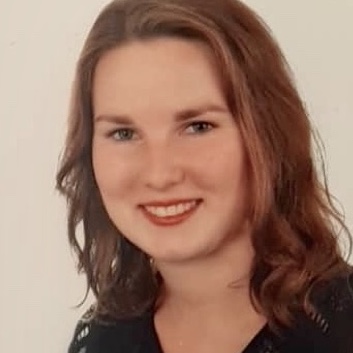My research experience: « Es gibt für alles ein erstes Mal » (There is a first time for everything)
I had started the last semester of my Master’s degree in Educational Technology when the research positions posted by Professor Nadia Naffi caught my eye. Except for a university course taken in 2020 (EDC-7011), I had no practical experience in this field. As my German family would say, “Es gibt für alles ein erstes Mal” (There is a first time for everything), so I enthusiastically embarked on my first journey as a research professional around the topic: “High quality, equitable and inclusive educational practices in higher education for after the COVID-19 pandemic”.
Since the beginning of my first meetings with my teacher Nadia Naffi, I noticed that we were partners, positioned on an equal footing in a constant learning loop. We had scheduled synchronous meetings each week to check in on our process, reflections, and contributions of solutions found in various articles of our topic.
My teacher took the time to guide me through each step of our project. As a result, I quickly became familiar with the scientific processes of our literature review. From the very beginning, I was introduced to search keywords (topics & clusters), Boolean programming and article coding. This constant support allowed me to discover the scientific universe at my own pace and with complete autonomy.
Among my tasks, I was in charge of the peer-reviewed articles and the overall follow-up of the literature review. I learned how to select international/Canadian databases and how to use advanced reference software features. The possibility of using advanced database filters or the progressive addition of exclusion criteria allowed me to set up scientific reflexes, questions, and tricks. Nevertheless, the entire process required time and several trials before resulting in the articles and results targeted in our requirements. If there’s one thing I have learned during this time, it is that one must constantly test and be persistent in one’s curiosity. Whether it is using different keywords or multiple combinations, you must dare to try different paths.
In my opinion, scientific research is not limited to a fixed approach or process; on the contrary, it is a universe of possibilities nourished by an approach of trial, error and attempt. Thus, our results have been enriched by the ambition to go beyond our discoveries.
In addition to developing scientific know-how, this research experience has enabled me to deploy a multitude of “soft skills”. By communicating and collaborating with co-researchers and professors from international faculties, our team was able to receive advice and recommendations from an external perspective. This allowed me to reflect and practice a meta-reflection on my approaches and those of our team. On this subject, I wrote a scientific journal accessible to our team to keep track of our way of working. Documenting the scientific steps taken as we went along was essential for our literature review.
Towards the end of my experience, our team expanded, and I oversaw the follow-up and successful integration of a new recruit. It was interesting to observe and compare the scientific processes followed by a professional researcher. I also consulted interviews with professors on their daily experiences in post-COVID higher education. This was valuable in establishing concrete links between my theoretical research and the reality on the field.
Looking back, I would like to mention a tool that helped me in my research methods: the Maxqda coding software. After going through several guides and tutorials, I would recommend the individual use of this software, which makes it easy to encode and extract quotations for all imported articles.
Overall, my research position has helped me strengthen my identity as a researcher in this project and in writing my own final project. Indeed, the use of tools and tricks developed during my term has been reinvested in my Masters’ thesis.
I would like to add that this mission was a real pleasure: the pleasure of entering an unknown universe, discovering new methods and tools. And above all, the pleasure of being part of a group where everyone contributed to enrich the common work, in a spirit of collaborative construction. Bonds of trust, sharing and even friendship have been forged between members. I appreciate the opportunity I was given to participate in this group in Québec. After three months of research, I am leaving my team with a scientific toolbox that I did not previously have.
I would like to thank my Professor, Nadia Naffi, for her role as a guide, as an important and decisive help in my studies, for trusting me, and for enabling me to approach the world of scientific research in a learning environment. I would like to thank her for her commitment and for her simultaneously demanding, stimulating, and caring support. I look forward to staying connected with her!
